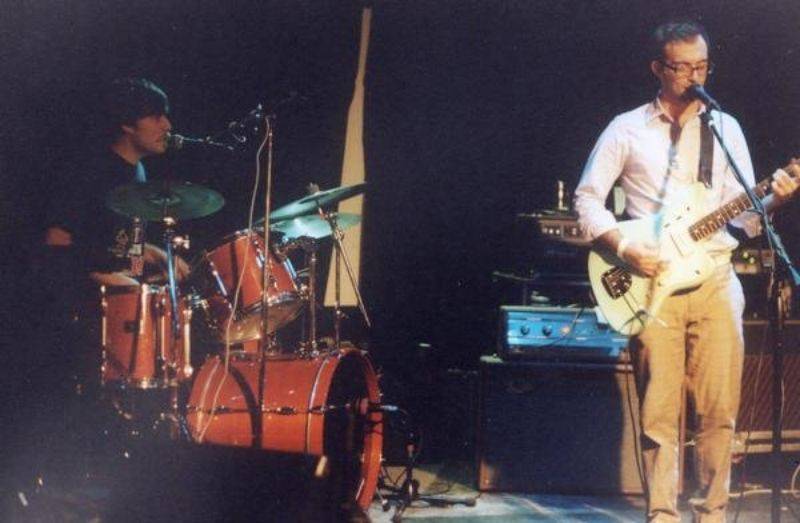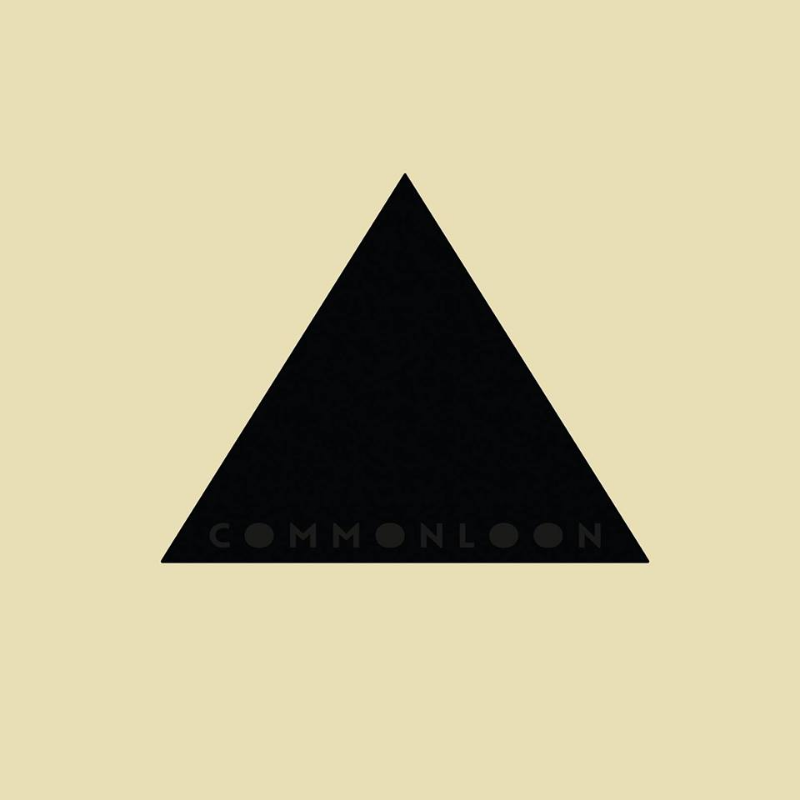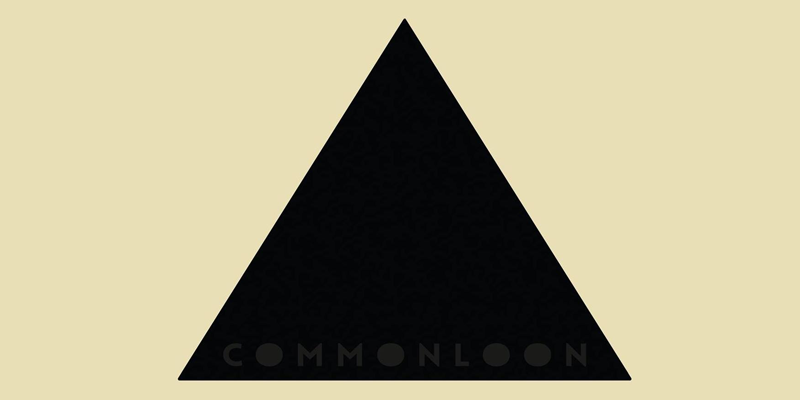Those who liked the irresistible The Long Dream of Birds by Common Loon from 2010 will also dig the band’s new self-titled record released back in April. There’s the same hazy mix of crunchy guitars, brooding synth, and a few overtly poppy gems thrown in as both guys trade lead vocals and harmonize.
Matthew Campbell and Robert Hirschfeld of Common Loon write atmospheric, tuneful songs that would make them kings of the indie music heap in a perfect world. Yet the musicians and longtime friends are perfectly content not making names for themselves, even spurning playing live most of the time. Guitar music may not be all that “in” right now, but Common Loon’s new self-titled album is a reminder that sometimes the most interesting, experimental stuff is being made with zero hoopla right in your own backyard. And it rocks in its own loopy way.
Those who liked the irresistible The Long Dream of Birds from 2010 will also dig the band’s new album. There’s the same hazy mix of crunchy guitars, brooding synth, and a few overtly poppy gems thrown in as both guys trade lead vocals and harmonize. Everything sounds very British. Campbell plays keyboards and drums, and his voice is startlingly similar to David Gilmour’s. Hirschfeld, meanwhile, plays guitar and bass and sounds a lot like Limahl, which is meant as a compliment. (Kajagoogoo’s White Feathers is an early-‘80s classic, in my opinion.)

Photo by Deb Campbell
Smile Politely: First off, welcome back. It’s been too long. How does it feel to make your return with a new album?
Robert Hirschfeld: The album has been done for some time now, but due to some combination of major life events, other objects of interest, laziness, and procrastination, it’s taken a long time to officially release it. It had been weighing on my mind for years, so there’s an immense feeling of relief to finally let it go. There was also some trepidation about putting out music after so many years of being absent from the scene. How will it be received? Who is left that knows who we are? Still, it has been incredibly gratifying to receive messages from people who appreciate our music.
It’s difficult to be objective about your own creative output. As much as I can be, I’m proud of what Matt and I have done here. I would happily write, play, and record sounds just for the benefit of the two of us. But, I won’t lie: It’s satisfying to hear that other people are moved by what you make. We hope people listen and enjoy it.

SP: What are you most proud of regarding this new album?
Matt Campbell: I’m proud that we finished it, first of all. I’m also proud that the music ended up sounding more or less how we wanted it to sound. What I heard in my head before it was translated to tape was pretty faithfully reproduced on the record, and to me that’s a satisfying feeling.
Hirschfeld: In addition to seeking to write good songs overall, I want an album filled with a hundred little mysteries, beautiful surprises, and transcendent but fleeting moments. I think and hope, if you put on the good headphones and listen closely, you’ll find a few of those.
SP: I listened for sonic differences between your first album, The Long Dream of Birds, and the new one and didn’t hear many. Did you do anything differently this time around in terms of crafting the songs or going for a subtly different sound?
Campbell: The main difference is the way the record was made. We did Long Dream entirely at Adam Schmitt’s place, with him engineering the whole thing and mixing it, and there’s no doubt that record sounds the way it does because of him. It sounds clean and bright and really great, I believe, and that’s all due to his experience, his ear, and his sensibilities.
For this one, the bones of the music were recorded at Matt Talbott’s studio, but we did all the overdubs ourselves, at Robert’s house. With the buttons being pushed by us instead of someone else, this record was always going to sound a bit different than the first, even though the songwriting and instrumentation are similar. In fact, three of the songs on this album were also recorded during Long Dream but were shelved for one reason or another. It was interesting to go back and listen to the old versions after the new ones were made.
Hirschfeld: We didn’t set out to make this sound similar or different than Long Dream. It was never a consideration either way. We wanted to present these songs the best way we felt we could. Ten years on, I’m still really happy with how the first record sounds. So if there’s consistency between the two, that’s fine with me.
SP: Why did you write a song dedicated to actor Harry Dean Stanton on the new album?
Hirschfeld: At one level, because his name was the first thing that came out of my mouth when the song arrived in my head. And, as someone who could easily stand in as a kind of Beat Generation archetype, I think HDS would appreciate adhering to that kind of Ginsbergian “first thought, best thought” spontaneity. I’d say he acted with a kind of fearless honesty that phrase aspires to.
On another level, because he’s the best. Roger Ebert said something along the lines of, “No movie with Harry Dean Stanton in it could be entirely bad.” What a testament to your life and work! He lived a strange and extraordinary life. And an unexpected one, I think. That’s aspirational. What a delight.
SP: Is that a group of children singing the chorus at the very end of “Harry Dean Stanton”?
Campbell: It’s a group of adults, actually. We played a show upstairs at Mike N Molly’s in maybe 2012 — I don’t remember exactly when — with the specific purpose of recording that part. We set up mics and played our regular set, and then told the audience what we wanted to do, and we sort of conducted them, and they nailed it.
Hirschfeld: The collective belief in the power of Harry Dean Stanton’s name was visceral.
Campbell: Then we overdubbed lots of our own vocals later and did whatever we could to make it sound huge. Robert’s idea was for it to sound like a soccer stadium full of tens of thousands of people chanting Harry’s name. I think it’s an appropriately odd tribute.
Hirschfeld: Harry himself as a mantra. He’d hate that. I love it. Top 10 Common Loon moment for me.
SP: What C-U band are you into right now?
Campbell: I’ve been really digging the Nectar album. And Wingclipper is amazing. I think his stuff deserves a huge audience.
Hirschfeld: I’ve been living in Chicago the last few years, so I haven’t kept up as much with C-U music. Motes are great. I caught Relevator at the Rose Bowl Tavern last month, and they were fantastic. I’m also excited to see what’s in store for Rose Bowl as a venue.
SP: What else would you like to say to Common Loon fans?
Hirschfeld: If you’ve ever attended a show, bought a record, or just enjoyed listening to what we make, we are deeply, deeply appreciative. We were touched that there are some people out there who were excited to have a new Common Loon record. The economics of being an artist, any kind of artist, are hard to square. The space for purely meaningless, unprofitable creativity can easily be squeezed out. The system privileges and incentivizes streaming over purchases. It privileges and incentivizes Amazon over the local shop. But where you can, support local artists and creatives.
You can check out Common Loon’s new album below.








